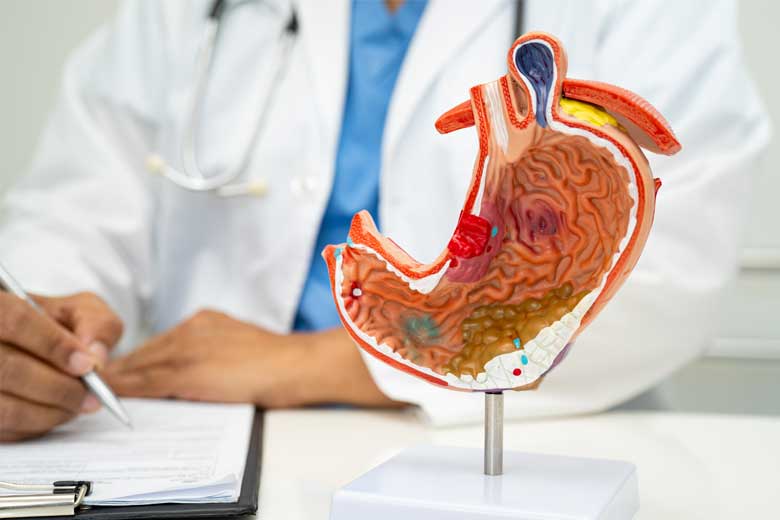
Common digestive problems, such as heartburn/GERD, IBD, and IBS, can cause a range of uncomfortable symptoms, including bloating, diarrhea, gas, stomach pain, and cramps. These conditions can often be managed through a combination of medication and lifestyle changes.
Digestion starts in your mouth, where saliva begins breaking down food as you chew. The food then travels through the esophagus—a muscular tube connecting your throat to your stomach—where it is pushed down to a valve that opens to let food into the stomach. Inside the stomach, digestive acids break down the food further.
Next, the food enters the small intestine, where digestive juices from the pancreas and gallbladder continue breaking it down and allowing nutrients to be absorbed. The remaining waste moves into the large intestine, which absorbs water, before the waste is excreted through the rectum and anus.
When gas accumulates in your stomach and intestines, it can lead to bloating—swelling and a feeling of fullness in your belly. Bloating can happen more frequently in individuals with conditions such as:
Symptoms to Watch For:
If you’re experiencing any of these symptoms, it’s important to seek proper diagnosis and treatment. By addressing digestive issues early, you can prevent discomfort and improve your digestive health.
Himenaeos sodales urna scelerisque ornare habitant